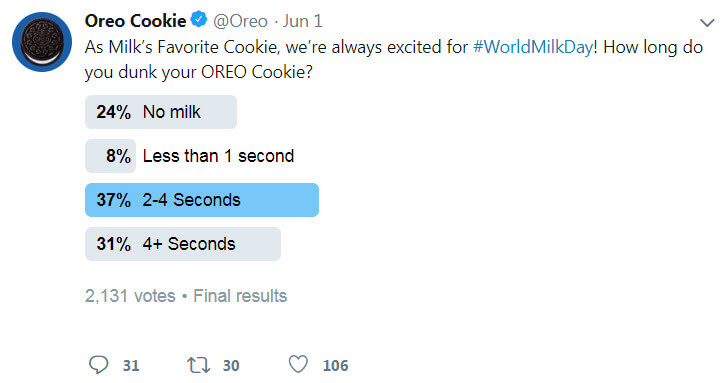
11 words and phrases to avoid using on social media — and what to say instead
Coming up with original or catchy wording for your social posts is important if you want to stand out in the busy social media sphere. To help you avoid common clichés, we’ve put together a list of words to avoid using, and potential replacements.
1. Groundbreaking
Unless you invented the smartphone or something truly groundbreaking, you should refrain from using this word.
- Good alternatives: Swap out groundbreaking with “innovative” or “new to our industry.”
2. Once-in-a-lifetime
Not only is this lofty and fluffy, it’s pretty doubtful that your customer will never again have a similar opportunity. Not to mention, it’s ambiguous. What’s so once-in-a-lifetime about what you’re offering?
- Good alternatives: Say “rare opportunity” or use a deadline or restriction like “Only 17 concert tickets left!”
3. Best
This is not only generic, but it tells readers nothing. Humans inherently go online to learn or be entertained so take this chance to teach and engage people.
- Good alternatives: Use “most-referred,” “customer favorite,” “learn more” or “find out how X will help your company.”
4. Impossible
Whether you mean “it’s impossible we have such a great deal” or “feeling like X is impossible,” the word gives a negative connotation.
- Good alternative: Write a short description of the article to tease it and include a link; your audience will do the rest. Below is a good example from skin care company Dove.

5. Think outside the box
It’s another all-too-common phrase, so resist the urge to use it. In fact, you should think outside the box and find something else to say. Be unconventional.
- Good alternatives: “Tips to help you get creative,” “Imagine this: No limit on new ideas,” or something descriptive but not scripted.
6. Game-changer
Unless you can back up your mega-hype with something that will have other people calling it a game-changer, you’ll want to swap out this out.
- Good alternatives: Try words like “beneficial” or “a new approach.”
7. World-class
Step out of the 1990s and drop the world-class phrase.
- Good alternative: Use statistics to show how amazing your company, product or service is (or just be engaging like Oreo, whose marketing is often exceptional).

8. LOL
We get it. It’s short, which makes it perfect for social media. This acronym for “Laugh Out Loud” is often used to indicate jest when a nonverbal statement might otherwise be taken seriously.
- Good alternative: If you’ve made a funny comment or post, let your readers decide and allow them to reply with their revelations of laughter while you say nothing at all. Here’s an example from food delivery service Grubhub:

9. Hurry!
You want people to get on board with what you’re selling, but demanding action in this way can seem unfriendly and unhelpful to potential customers.
- Good alternatives: Try friendlier ways to create a sense of urgency like “This deal expires in 24 hours” or “limited time offer.”
10. Lit AF
Don’t try to be relevant in the wrong way. Not only do terms like “lit” and “AF” sound unprofessional, but by next year the cool kids may not even be using them. If you really want to be “lit” just, um, quit. Don’t load people down with slang or swear words.
- Good alternative: Use words everyone can understand such as “The cool deal for your hottest summer days.”
11. Salty
Another slang term to cross off your list of words. It stands for being “upset” or “unhappy” about something. Let other people be salty; just focus on explaining what emotion you’re trying to convey, in a way that everyone will understand.
- Good alternative: Try to choose lighter, more relatable emotions like “Reasons to celebrate this August”
Overall, the best takeaway is to replace overused or slangy terms in your social media marketing with more specific and descriptive words. While those buzzwords may work for some brands, you’re more likely to earn your customers’ interest, trust and business if you’re original and not trying too hard. Start today: Start conversations with your audience. Open up a door to communicate with them by asking things like “What frustrates you?” or “Share your thoughts on this.” Be social with your audience, not shy.
Join 140,000 small business owners
Editor’s note: This article was originally published in March 2015 and has been updated and rewritten for accuracy and relevance.
© 2018, Contributing Author. All rights reserved.
 SUBSCRIBE
SUBSCRIBE 


